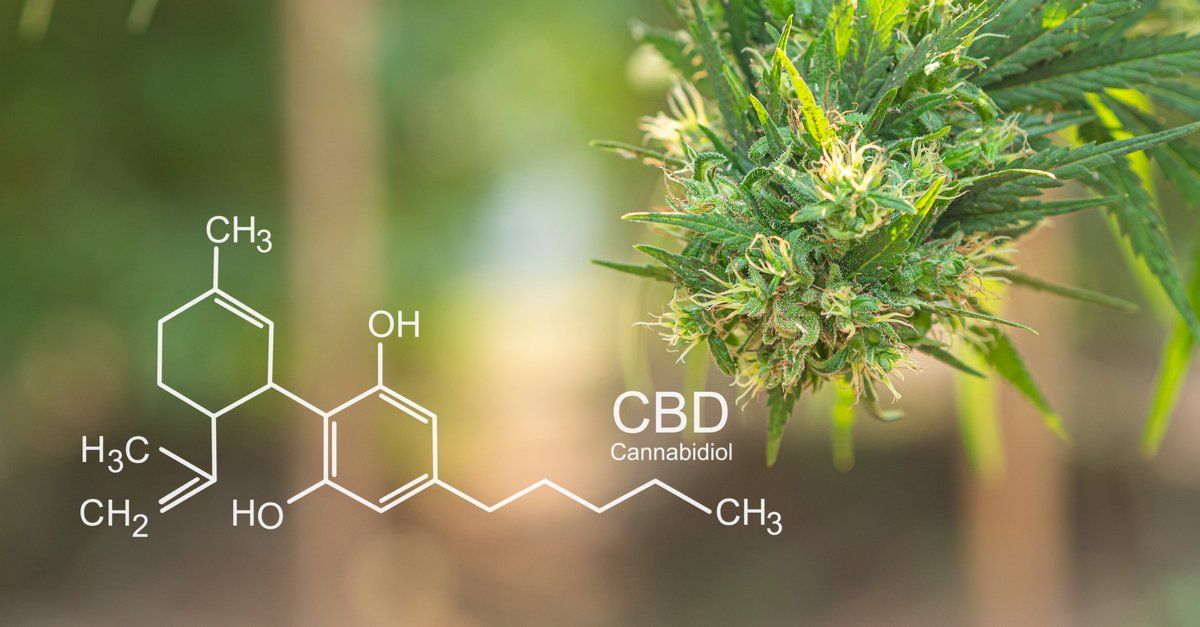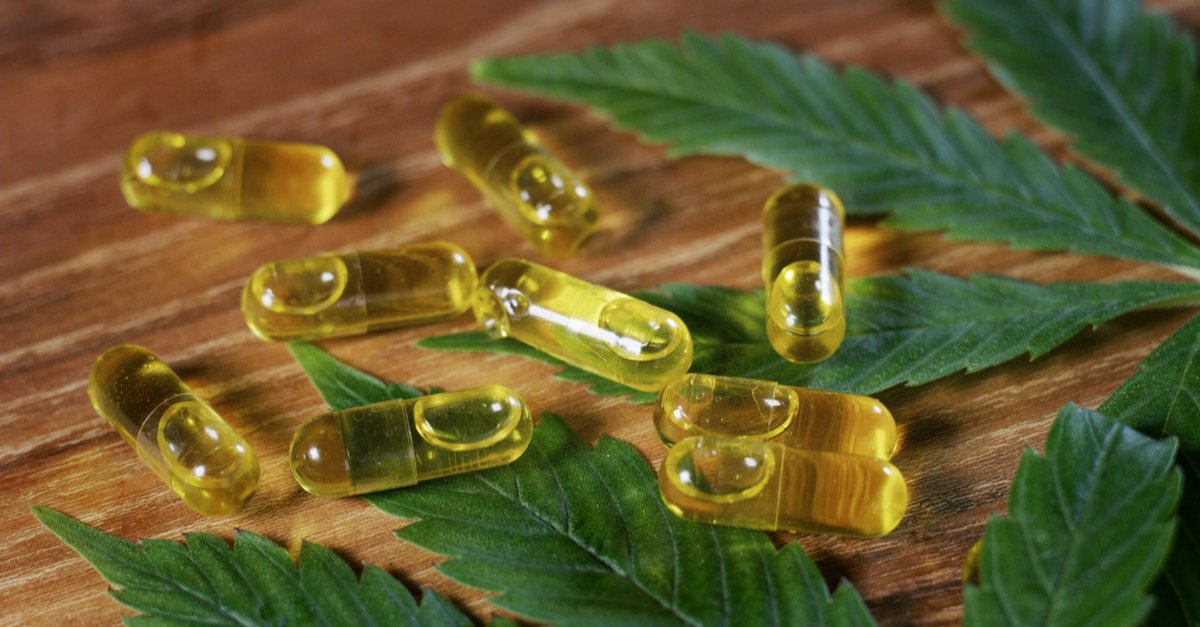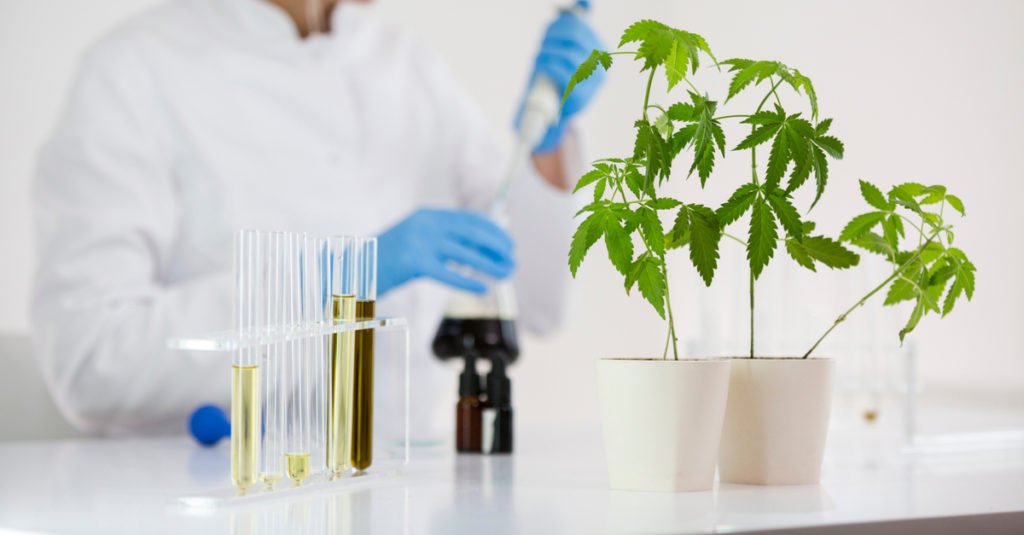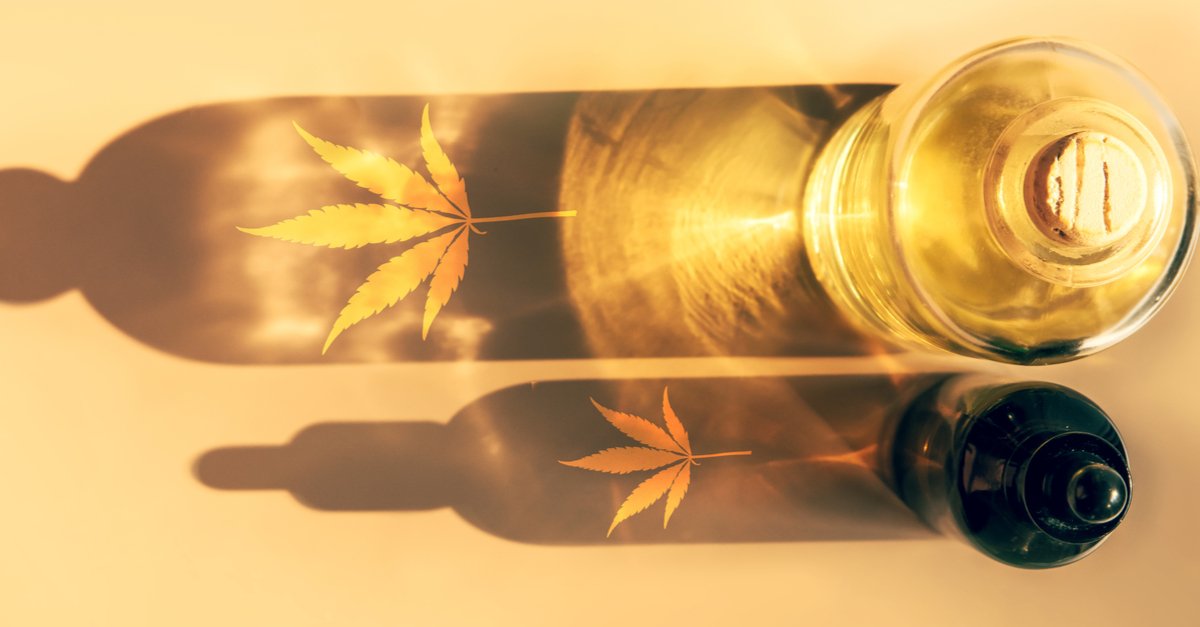Asthma is a common lung condition that causes breathing issues and affects people of all ages. Approximately 8% of the US population has asthma – that’s 25 million Americans!
Many get on fine with mainstream asthma treatments, but some don’t, so folks are turning to CBD. The non-intoxicating hemp supplement has several possible health benefits, and early research suggests it may help with asthma.
In this comprehensive guide, I’ll look at the current science surrounding CBD and its potential future as an asthma treatment. I’ll also touch upon how CBD could help you right now. Let’s kick things off with three CBD products that could ease your asthma symptoms!
1. CBD Genesis – CBD Tincture Oil

The CBD Tincture Oil from CBD Genesis provides fast-acting relief, free from the downsides of smoking and vaping. Enjoy it sublingually or mixed with foods or beverages.
Made with full-spectrum hemp extract, this tincture delivers the benefits of CBD and other cannabinoids and terpenes, too. All these compounds together team up to produce the renowned synergistic entourage effect.
The CBD Genesis Tincture also contains MCT oil and coconut oil, making the CBD more bioavailable and effective! Sold in 30ml bottles, these tinctures are third-party tested by Hammer Enterprises and have less than 0.3% THC.
Sizes: 550mg (18.3mg per serving), 1000mg (33.3mg per serving), 2000mg (66.6mg per serving)
2. For The People – Dark CBD Tincture

I’ve never seen a more extensive collection of CBD oils than these Dark CBD Tinctures from For The People. Uncut and unrefined, this raw, full-spectrum hemp product has all the good stuff and nothing else!
People don’t use any artificial chemicals, preservatives, or any PG or VG as a carrier oil. They blend the cannabinoid and terpene-rich hemp extract with MCT oil and then leave it alone!
Every Dark CBD Tincture is third-party tested by SC Labs and has less than 0.3% THC.
Strengths: 300mg (30mg/ml), 600mg (40mg/ml), 1200mg (40mg/ml), 2400mg (80mg/ml), 4800mg (80mg/ml), 7200mg (120mg/ml)
Strains: Blue Cheddar, Blue Dream, Durban Sour, Green Kush, Grandaddy Purple, OG Kush, Orange Cookies, Raw Lemon, Raw Natural, Raw Orange, Raw Peppermint, Strawnana, Super Lemon Haze, White Fire OG, White Widow
3. CBD Genesis – CBD Capsules

CBD capsules might be more to your liking if you don’t like the unavoidable earthy aftertaste from tincture oils. If so, look no further than these potent caps from CBD Genesis!
Each capsule contains 75mg CBD extract, along with omega-3-rich hempseed oil, purified water, and glycerin. CBD in capsules has a slow-release effect, with the benefits lasting for several hours. In contrast, sublingually-absorbed CBD wears off after about three hours.
CBD Genesis makes things easy with soft gel capsules, which are much easier to swallow than large hard caps. However, they are made with gelatin, so they aren’t vegan-friendly. Third-party tested by Hammer Enterprises with less than 0.3% THC.
Sizes: 20-count (1500mg total CBD), 40-count (3000mg total CBD)
What is CBD?
Cannabidiol (CBD) is a non-psychoactive, naturally occurring substance found in cannabis plants. CBD is part of the cannabinoid family, a group of compounds seemingly exclusive to cannabis. Researchers have identified and isolated more than 120 unique cannabinoids.
Hemp-derived CBD is legal in the United States. Marijuana-derived CBD (i.e., cannabis extracts and products with more than 0.3% THC) is illegal at the federal level. However, these products are permitted in states that have legalized recreational cannabis.
CBD interacts with the body in several intriguing ways and appears to play a crucial role in the endocannabinoid system (ECS). Studies suggest CBD has a regulating effect on the ECS, boosting levels of anandamide and other endocannabinoids.
CBD is also a negative allosteric modulator of the CB1 receptor, which explains its neutralizing effect on psychoactive THC. In promoting ECS regulation, CBD may help to regulate pain perception, mood, cognition, appetite, the immune system, and more.
There are two types of CBD users: those who use products as supplements and those who take CBD to self-medicate. While it’s still somewhat uncommon, a growing number of people are using CBD as a natural remedy for asthma.
Can CBD help with asthma?

I want to stress that I’m not making any medical claims here. CBD is not an approved treatment for asthma, and I’m not recommending you take CBD instead of your existing asthma medication.
This section is all about informing and educating on the existing evidence concerning CBD and asthma. Frustratingly, we have a lack of research on CBD in general, although that is changing thanks to the soaring interest in CBD over recent years.
But here’s an astonishing fact: the endocannabinoid system has likely been present in life forms for millions of years, yet we didn’t even know it existed until the 1990s.
That puts into perspective how far behind we are with our cannabis understanding, a plant humans have consumed for thousands of years. But here’s a taste of what researchers have learned about CBD and asthma.
In 2015, the Mediators of Inflammation journal published a research paper suggesting CBD could help to “modulate the inflammatory response in asthma.” CBD treatment managed to reduce nearly all analyzed cytokine levels in animal models.
A study featured in the European Journal of Pharmacology in 2019 was even more encouraging, given it was conducted on humans. Scientists found that CBD reduces airway inflammation in asthmatic patients, likely via engagement with cannabinoid receptors.
These are plausible results, considering the ECS – and specifically the CB2 receptor – is linked to the immune system. Several cannabinoids are associated with anti-inflammatory effects.
If CBD does eventually become an approved asthma treatment, I’ll be fascinated to see whether it’s used in isolation or in conjunction with other cannabinoids. Cannabigerol (CBG), tetrahydrocannabivarin (THCV), and even THC could all have therapeutic potential for asthma.
Best types of CBD products for asthma
If you are keen to experiment with CBD for your asthma, you’re probably wondering which type of product you should use. The following three are all excellent ways of getting acquainted with CBD.

Tincture oils: You can take these under the tongue or by stirring them into beverages or meals. Under-the-tongue sublingual absorption offers more immediate relief and could work well in the event of an asthma attack. CBD oil taken in a drink has a more gradual effect.

Capsules: These CBD products deliver consistent and accurate doses. If you are fussy with your supplements and always want to take exactly the same amount, capsules work as a treat.
They are discreet and easy to use – swill down with a glass of water. But bear in mind that CBD consumed in capsule form may take 45 minutes to kick in or longer if taken on a full stomach.

Edibles: CBD gummies and brownies work similarly to capsules, delivering a precise dosage while masking the hemp flavor. If asthma stops you from getting uninterrupted sleep, the extended effects may help keep your airways open throughout the night.
Side effects of CBD
Like all supplements and drugs, CBD products can cause side effects. But CBD is much less risky than THC-rich marijuana since it doesn’t have psychoactive properties.
CBD, especially in large doses, can make you sleepy and drowsy. You should avoid driving or operating heavy machinery after using CBD products. While they don’t affect your mental faculties, the sedative effects can make it difficult to concentrate.
CBD may also cause nausea, dry mouth, lightheadedness, and diarrhea. Otherwise, CBD is mostly safe and can be tolerated in very high doses. However, taking CBD products with some prescription drugs could be unsafe. CBD can affect how the body metabolizes certain drugs.
CBD may interfere with the following classes of medication: antihistamines, antipsychotics, antidepressants, beta-blockers, opioids, stimulants, and benzodiazepines. Consult with a medical professional if considering taking CBD products alongside any of these drugs.
What to Look For When Buying CBD for Asthma
You don’t need me to tell you that the CBD industry has exploded over the past decade! But with so many brands and products to choose from, it’s easy to get paralysis by analysis when you go shopping for CBD.
I like to keep things simple and focus on a few specific areas when buying CBD products. Finding your perfect match may still take some trial and error, but looking for the following will steer you in the right direction.
Third-party lab tests

Although CBD is a multi-billion-dollar industry, the Food and Drug Administration (FDA) still does not regulate CBD products. Thankfully, third-party testing has helped to end the Wild West nature of the market, which plagued CBD in its early days.
Honest manufacturers send their CBD products off for third-party testing. Unlike fraudsters, these brands have nothing to hide and want to distinguish themselves from these companies by proving it.
Good third-party tests verify that products have the right amount of CBD, legal levels of THC, and no harmful by-products and impurities. Vendors should make third-party reports easy to find – those that don’t may be trying to cover something up.
CBD Strength
Product potency matters a great deal. If your issues are mild, you don’t need to shell out hundreds of bucks for a product with several thousand milligrams of CBD. If you have severe symptoms, CBD products that only offer a few milligrams per serving won’t be enough.
Establishing an effective CBD dosing routine can take time, and it starts with getting the right product. As a general rule, I recommend starting with low-strength products and then working your way up if necessary. It’s also a cheaper way of approaching CBD!
Type of hemp extract
CBD-isolate extract: Get the benefits of pure CBD with products containing CBD-isolate extract. If you get drug tested regularly and don’t want to risk having any THC in your system, CBD-isolate products will give you peace of mind.
Full-spectrum hemp extract: For maximum therapeutic benefits and the entourage effect, look for products made with full-spectrum hemp extracts.
These consist of CBD, minor cannabinoids like cannabinol (CBN), and terpenes. Whole-plant hemp extracts do have small amounts of THC, but less than 0.3%.
Broad-spectrum hemp extract: Want the entourage effect and security with drug tests? Get the best of both with CBD products made from broad-spectrum hemp. These have everything you’ll find in a full-spectrum product except for THC!
How to Store Your CBD Products

Keep your CBD products fresh and potent by storing them in dry, dark, and cool conditions. CBD exposed to sunlight can lose effectiveness due to ultraviolet (UV) ray degradation.
Some products, such as hemp flower and moon rocks, are also at risk of oxidation and should be stored in an airtight tub or jar. Make use of any resealable bags if provided with your purchase.
Relative to THC products, CBD poses fewer risks for children. But you should still keep them out of reach. The likes of gummies often have attractive packaging, and it’s easy to mistake them for regular candies.
How Long Do CBD Products Last?
Take storage seriously, and CBD products will easily stay fresh for several months. Some people report getting decent experiences from CBD that they bought nearly two years ago!
Purchasing CBD Products Online vs. Shops Near Me

While I’m delighted that CBD is so popular, seeing so many companies selling it is also a concern. I’m not so worried about health and wellness shops, but the non-specialist brick-and-mortar stores like gas stations that see CBD as an easy earner.
Buying CBD products online from a respected hemp retailer is the safest and most convenient approach. Genuine hemp shops won’t rip you off with sketchy products.
Physical stores are notorious for selling CBD products without third-party reports. And even if they do have legit products, the reports aren’t always available, leaving you in the dark. In contrast, all trustworthy online stores provide links or screenshots to lab reports on the respective product web pages.




